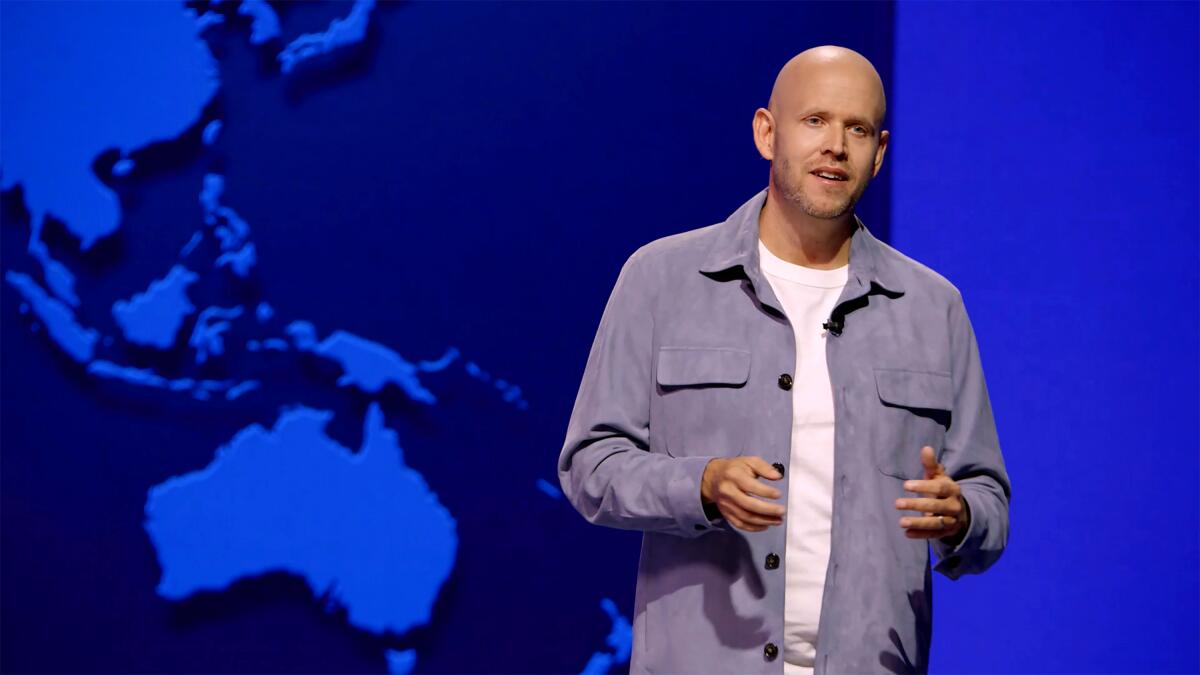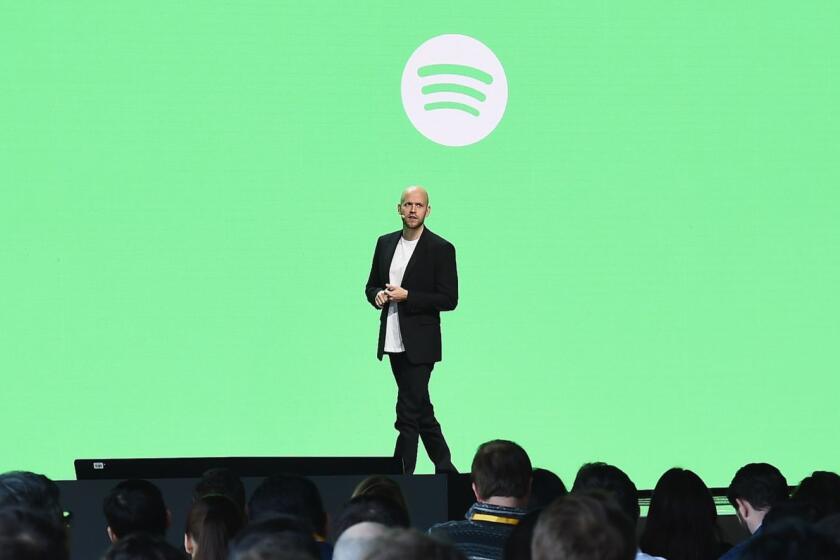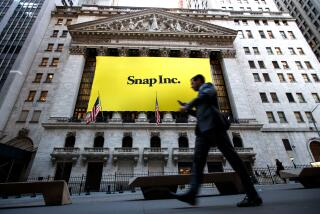Spotify woos video and podcast creators with new tools to better compete with YouTube

- Share via
Swedish streaming audio giant Spotify is courting more video creators, podcasters and influencers in an effort to step up its competition with popular digital platforms such as YouTube, Instagram and TikTok.
The Stockholm-based company on Wednesday hosted creators at its office in downtown Los Angeles’ Arts District, where executives showed off new features meant to make it easier for video makers to make money from their content and track their performance on the streaming service. The company is launching a new program to help creators earn more advertising and subscription revenue, Spotify said.
For example, Spotify Premium subscribers soon will be able to view videos on the service without ads. This comes after some video podcasters have groused about the number of commercial breaks in their shows, which can irritate paying listeners. Qualified creators can earn money based on how often the ad-free videos are streamed.
“Now, financial success and quality of your show aren’t at odds anymore — they are correlated,” Gustav Soderstrom, Spotify’s co-president and chief product and technology officer, Gustav Söderström Soderstrom, said during the event.
Ad-free videos will start in January for premium users in the U.S., United Kingdom, Australia and Canada. Spotify users who do not want to pay for a subscription still can listen to music, podcasts and audiobooks for free with ads. Video creators earn a share of those ad revenues. Audio-only podcasts still will have ads for Premium users.
Once a purely streaming music company, Spotify five years ago expanded into podcasting, buying podcast companies and later spending considerable sums to get exclusive deals with popular hosts including Joe Rogan and Alex Cooper. That helped diversify Spotify’s offering, but the company eventually pulled back on some big deals after overspending. It recalibrated its podcast strategy and laid off employees.
But podcasts remain a big draw for the service. Spotify also has added audiobooks to its catalog.
After the company’s review of its podcast strategy, Spotify moved away from its exclusive deals with podcasters and now is offering more financial incentives for creators to place videos on its platform, as consumer demand and creator interest in videos have gone up.
Spotify grew its video content in 2020, when the streaming service allowed podcasters to upload videos of their interviews and conversations. Today there are more than 300,000 video podcast shows on Spotify, the company said.
Spotify said more than 250 million users have streamed a video podcast. The number of creators posting videos monthly on the service has risen more than 50% year over year.
Bringing more video creators to the service could lead to users spending more time on it. That could help Spotify decrease subscriber churn, increase advertising dollars and attract new customers.
This year, the streaming service launched music videos in about 100 markets (but not yet in the U.S.) and there are possibilities for other types of video content on the platform too.
“Who’s to say that we can’t imagine someday we’ll have authors talking about their books and [we would] be able to bridge you straight into listening to that book?” Alex Norstrom, Spotify’s co-president and chief business officer, said in an interview.
Spotify will now offer seven video podcasts, including ‘Higher Learning,’ ‘Book of Basketball 2.0’ and ‘Fantasy Footballers.’
It also puts Spotify in a better position to compete with YouTube, which already shares advertising and subscription revenue with its video creators. YouTube offers its video library for free with ads and also sells YouTube Premium, which starts at $13.99 a month and gives ad-free access to its YouTube and YouTube Music.
Earlier this year, YouTube said it had more than 100 million Premium subscribers, including those on a trial subscription. YouTube’s free, ad-supported version has billions of users.
Spotify reported 640 million monthly active users in the third quarter, up 11% from a year ago. Spotify Premium has 252 million subscribers.
When asked by an analyst about Spotify’s scale, reach and engagement being smaller than YouTube’s, Spotify Chief Executive Daniel Ek said on an earnings call Tuesday that “people make it out to be the winner-takes-all dynamic in that there’s only one player that can solve all of it,” but what creators want is to be on multiple platforms.
“That’s certainly what we learned in podcasting and that’s what we’re leaning into,” Ek said, adding that there are many creators on Spotify that who post only parts of their content and “new creators that have needs which we aren’t yet fulfilling.”
Spotify executives said they believe the company has room to continue to grow. The company on Tuesday said it anticipates earning a full-year profit in 2024, which would make this Spotify’s first profitable year.
Spotify opens a downtown L.A. campus with 18 podcast studios as it expands its audio and video programming.
More to Read
Inside the business of entertainment
The Wide Shot brings you news, analysis and insights on everything from streaming wars to production — and what it all means for the future.
You may occasionally receive promotional content from the Los Angeles Times.













